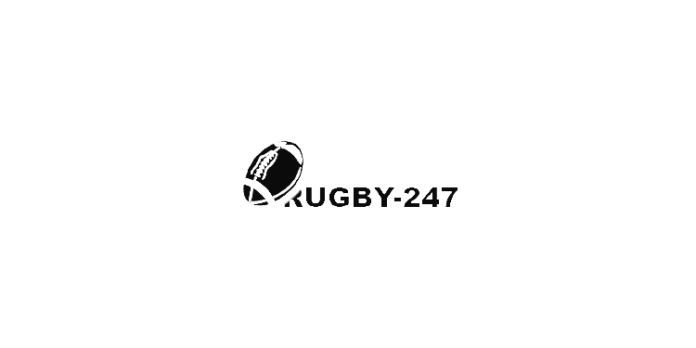
[ad_1]
Amid a tidal wave of frothing outrage in New Zealand in response to Joe Marler’s comments about the Haka, here’s an alternative take – he’s done wonders for interest and projected viewing figures on Saturday.
Who is going to miss it now? Suddenly, there is a powerful glare of attention on a marquee fixture which was in danger of flying under the radar, for much of the public in this country and beyond.
All was quiet, all was calm, all was a bit low-key and – frankly – a bit dull. Not now. The fuse has been lit. There is tension and anticipation.
Rugby is a sport which doesn’t do a great job of selling itself and generating box-office hype, but the job has been done by someone who is not in any marketing department… although he certainly could be.
What Marler did was dare to voice doubts about the Haka ritual, which is seen by many as sacred and not open for discussion or, heaven forbid, criticism.

Amid a tidal wave of frothing outrage in New Zealand in response to Joe Marler’s comments about the Haka, here’s an alternative take – he’s done wonders for interest
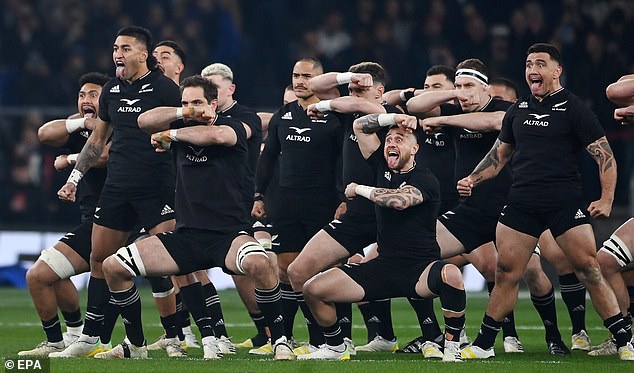
What Marler did was dare to voice doubts about the Haka ritual, which is seen by many as sacred and not open for discussion or, heaven forbid, criticism
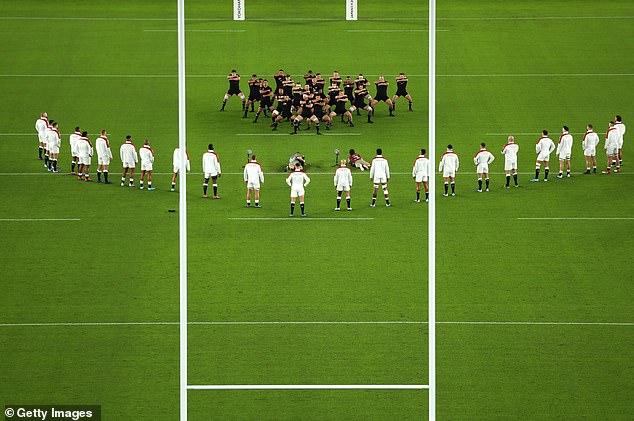
In 2019, England’s arrow-formation, complete with Owen Farrell glaring in the middle of it and Marler advancing well beyond halfway on one side, set the tone for an epic victory
Part one of the promotional strategy involved the veteran Harlequins prop putting out a post on X which read: ‘The Haka needs binning. It’s ridiculous.’
While the shockwaves from that view were still resonating, Marler clarified his opinion by posting: ‘It’s only any good when teams actually front it with some sort of reply. Like the league boys did last week.’
That was a reference to the scenes before kick-off in the England v Samoa rugby league Test in Wigan last Sunday, when the visitors performed their traditional war-dance challenge, the Siva Tau, right in the faces of the home players, with some opponents literally head-to-head.
The footage was soon going viral. Would that have happened if the teams had been kept apart? Of course not.
Within hours of Marler’s remarks, he had been forced to delete not just the posts but his whole account, such was the scale of the ‘pile-on’. Some of the replies he received were vile and unprintable, as the toxic world of social media convulsed in protest.
It is worth noting that Marler was not ordered to delete his posts or his account by the RFU or the England management. He is not in any trouble for saying what he said.
The expression of personal views, even if they are polarising and sensitive ones, is not forbidden by any code of conduct – providing they are not deemed to have gratuitously caused offence, which is not the case here.
It is a sad sign of the times that a debate cannot take place without poisonous rhetoric. Instead of defending the Haka ritual, many Kiwis and others simply set upon Marler. But his point was valid, once he had provided the clarification.
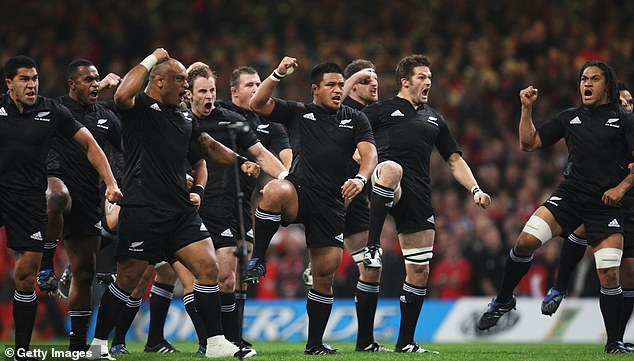
Perhaps the best response of the lot in the Welsh capital came in 2008 when Richie McCaw and his All Blacks finished their Haka, only for Ryan Jones to lead the hosts in a tense stand-off
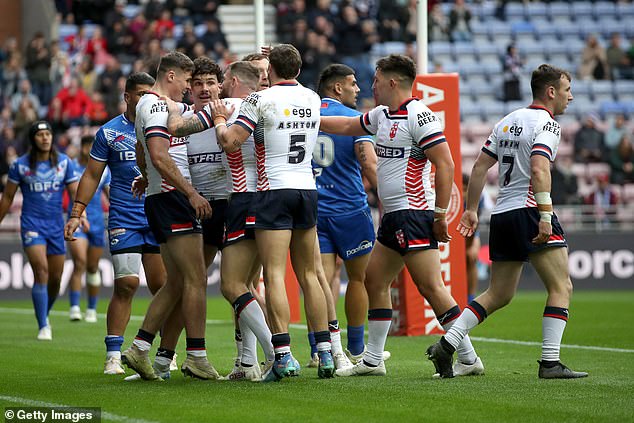
Marler also made reference to the England v Samoa rugby league Test last Sunday, when the visitors performed their traditional war-dance challenge right in the faces of the home players
The Haka should not be banned, or ‘binned’, of course not. It is a tradition which draws an audience to the sport, while also representing cultural heritage.
It is the calling card of the All Blacks around the world and a popular attraction wherever they go. It is also, undoubtedly, a powerful part of the commercialisation of a national team, which has become such a leading oval-ball ‘brand’.
But Marler is right; it is absolutely best when there is a response to the challenge. Very few people not sat in the stadium at the time will remember any particular Haka when the opposition are stood dutifully 20 metres away, still and passive while New Zealand work themselves into a psyched-up state before kick-off.
On one side, there is channelled aggression and on the other, there is often a passive opposition.
That is not a memorable spectacle or a balanced lead-up to a fire-and-brimstone Test match. It is better all round when the team receiving the challenge do something other than stand still and watch.
Everyone will have their favourite memory of such an episode and this correspondent has several, scattered across the professional era.
Think back to 1997 when England took on the All Blacks at Old Trafford and Richard Cockerill ended up toe-to-toe and eyeball-to-eyeball with his rival hooker, Norm Hewitt. It was a confrontation which has gone down in folklore. The challenge was certainly met.
There were a series of such incidents in Cardiff during the early 2000s, as Wales sought ways to ruffle Kiwi feathers.
There was the time when opera singer Wynne Evans – yes, he of GoCompare and Strictly Come Dancing fame – delivered a spine-tingling rendition of Bread of Heaven after the Haka, which produced a fervent atmosphere at the Millennium Stadium.
The following year, New Zealand were so incensed about the prospect of another Haka response that they performed it in their changing-room.
Perhaps the best of the lot in the Welsh capital came in 2008 when Richie McCaw and his All Blacks finished their Haka, only for Ryan Jones to lead the hosts in a tense stand-off – refusing to back away. When McCaw eventually stepped back first, the commotion was off the chart.
France, and in particular Sebastien Chabal, faced down the war dance to devastating effect at the 2007 World Cup and so nearly repeated the feat four years later in Auckland, in a close-encounter final.

Within hours of Marler’s remarks, he had been forced to delete not just the posts but his whole account
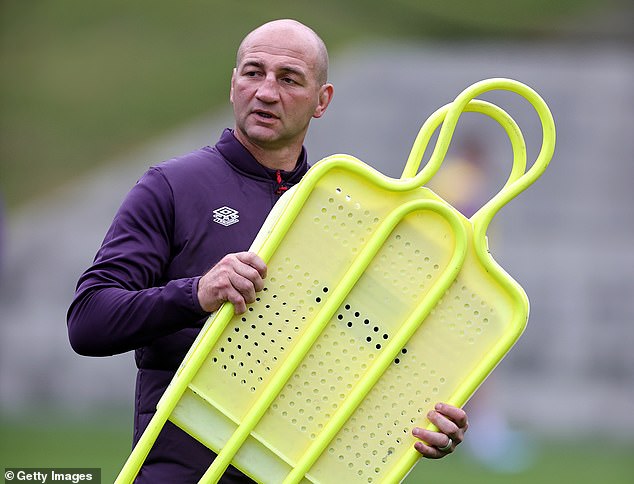
Steve Borthwick’s England face off against New Zealand on Saturday
Then in 2019, England’s arrow formation, complete with Owen Farrell grinning in the middle of it and Marler advancing well beyond halfway on one side, set the tone for an epic victory.
It doesn’t always pay off for teams who stand up to the challenge. Sometimes they poke the bear and are blown away by incensed opponents. But, from a performance standpoint, it is worth trying to upset the usual routine. And in terms of the spectacle, it is infinitely better.
Marler is right; without a response, the Haka show can be too sanitised. Let teams react to it and it is box-office gold.
[ad_2]
Copyright for syndicated content belongs to the linked Source link


